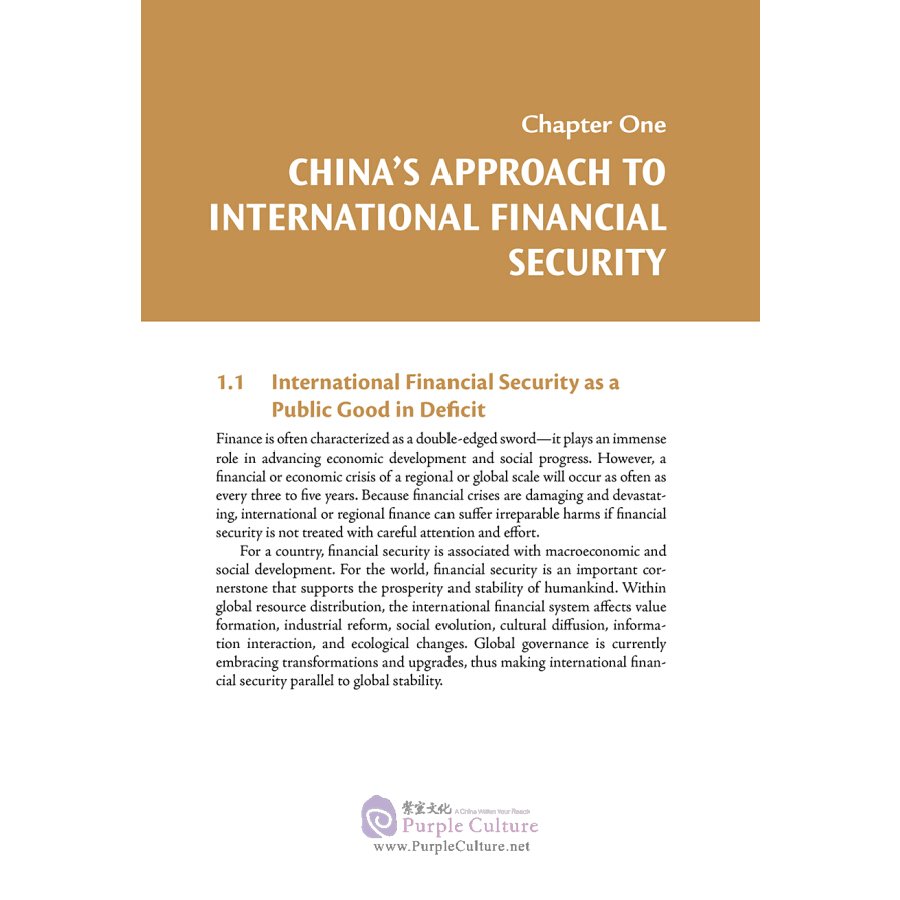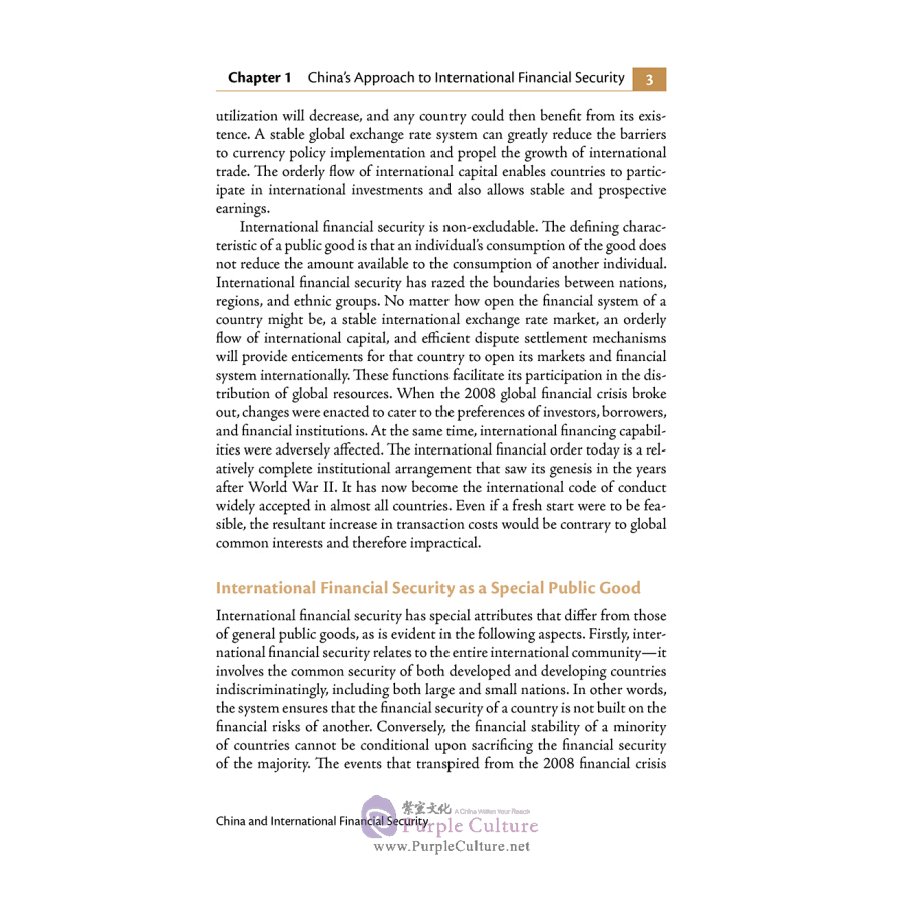On several occasions since 2016, Chinese President Xi Jinping stressed the importance of China’s active participation in the international efforts to reform the system of global governance. Written by a group of prominent Chinese scholars and officials, the China and Global Governance Series aims to present the international readers with China’s approach to global governance and the Chinese wisdom behind it. In the ten titles forming this series, the authors elaborate on China’s perspectives on global governance, peace, and development, as well as seven other important aspects of global governance—financial security, energy security, climate change management, foreign aid, cybersecurity, human rights protection, and anti-terrorism.
ZHANG Hongli is a professor teaching at the University of Chinese Academy of Sciences and the PBC School of Finance, Tsinghua University. Zhang is the author of Finance and National Security, Chinese Finance and Global Governance, and Red Finance. He has also published dozens of scholarly articles including “Financial Security and National Interest,” “Finance Plus and Values Safety,” “Global Governance of International Finance and China’s Contribution,” and “The Finance-Led Belt and Road.”



Our world is currently in the throes of unprecedented changes, presenting both risks and opportunities. As the global value chain system develops and the importance of developing countries in the international community continues to increase, the trend of multi-polarization has a become irreversible. Now, more than ever, we must pursue cooperation and peace to guarantee long-term economic development.
As a key element of resource allocation, the finance industry has been tasked with a new historic mission. At present, the international division of labor is being bolstered by a new round of technological innovations and industrial upgrading; global economic imbalances remain prominent; poor infrastructures of developing countries severely restrict economic development; climate change poses an ever-increasing threat and green finance is facing a noticeable shortfall. Therefore, it has become more important to seek new development opportunities and common interests through institutional innovations in international finance.
International financial security is an important component of the world’s holistic security system. From the subprime crisis to the European debt crisis, global economic stability in the last decade has been greatly affected by rampant profiteering and the lack of regulation. Moreover, the spillover effect of monetary policies and the dramatic fluctuation of the FOREX market further complicated policy coordination; financial technology, digital currencies, and blockchain technology created new dilemmas. Confronted with these inevitable challenges, no country is strong enough to face these problems alone and emerge unscathed.
At present, the economic and trade governance system, with the IMF, World Bank, and WTO as its main pillars, remains an irreplaceable part of global governance. There has also been a rise of developing countries, enabling the multilateral governance organizations, such as the G20, BRIC+, APEC, and AIIB, to take on a greater international presence. However, this is also met with the unprecedented influx of the protectionist, hegemonic, and isolationist ideologies, threatening financial stability and impairing international financial governance development. As such, every finance practitioner must devise strategies to strengthen international cooperation and optimize global resource allocation.
The reform and opening up of markets have enabled China to grow from an impoverished country to the second largest developing economy of the world, proving the possibility of a peaceful rise. In the process, Chinese finance has trodden a path that is quite different from that of developed countries. China has persisted in the orderly financial reform and open markets in light of its own national conditions in the past 40 years, effectively supporting the healthy development of the economy and withstanding the ordeals of several regional and international financial crises. Since the 2008 crisis, China has placed the prevention and control of financial risks as its priority, taking a series of measures to fortify financial regulations. These measures have not only safeguarded domestic financial security and stability but also played a part in boosting regional and global economic growth.
It is a fact proven by China’s experience that the world today has become a community with a shared future and that economic globalization is not a zero-sum game. Healthy national economic development can only be ensured by the stable growth of the global economy. Only by adopting the principle of achieving shared growth through discussion and collaboration and pursuing “unity in diversity” can people from all over the world engage in the quest for common prosperity. In the future, China will consistently implement the mutually-beneficial and all-win open market strategy, and continue to promote free trade and investment; policies such as the Belt & Road Initiative will also stimulate other countries to seek and realize common development.
The Chinese experience is an integral part of the global experience. In this new era, China will involve itself in the reform of the global governance system. It will positively and effectively contribute its own wisdom toward the creation of a fair and efficient international financial system while respecting cultural differences and national interests.
Authors of this book aim to analyze and sum up the contradictions observed in the current international financial governance system and then advance their proposals for the reform of this system. Limited by knowledge, ability, and vision, it is impossible for this, or any other book to cover every facet and nuance of this topic. We sincerely hope that the publication of this book—as a voice of China—will initiate positive thinking and participation of all financial professionals across the globe, in the effort toward maintaining the stability of the international financial order and promoting the sustainable development of the global economy.